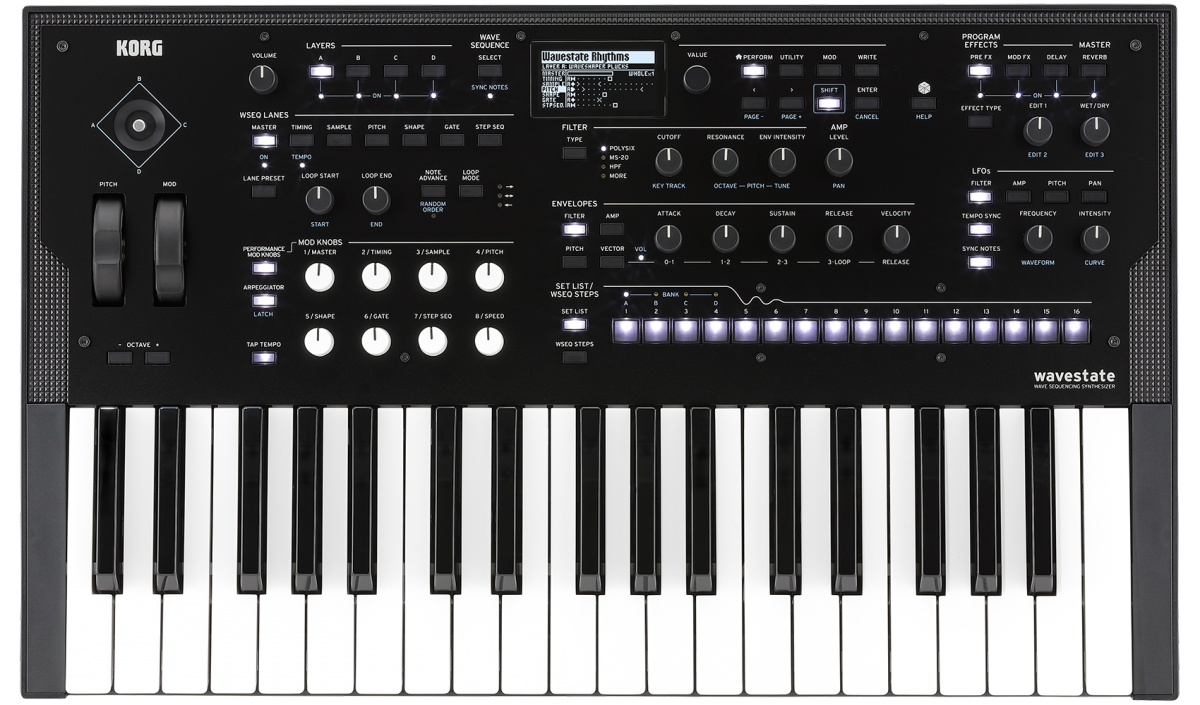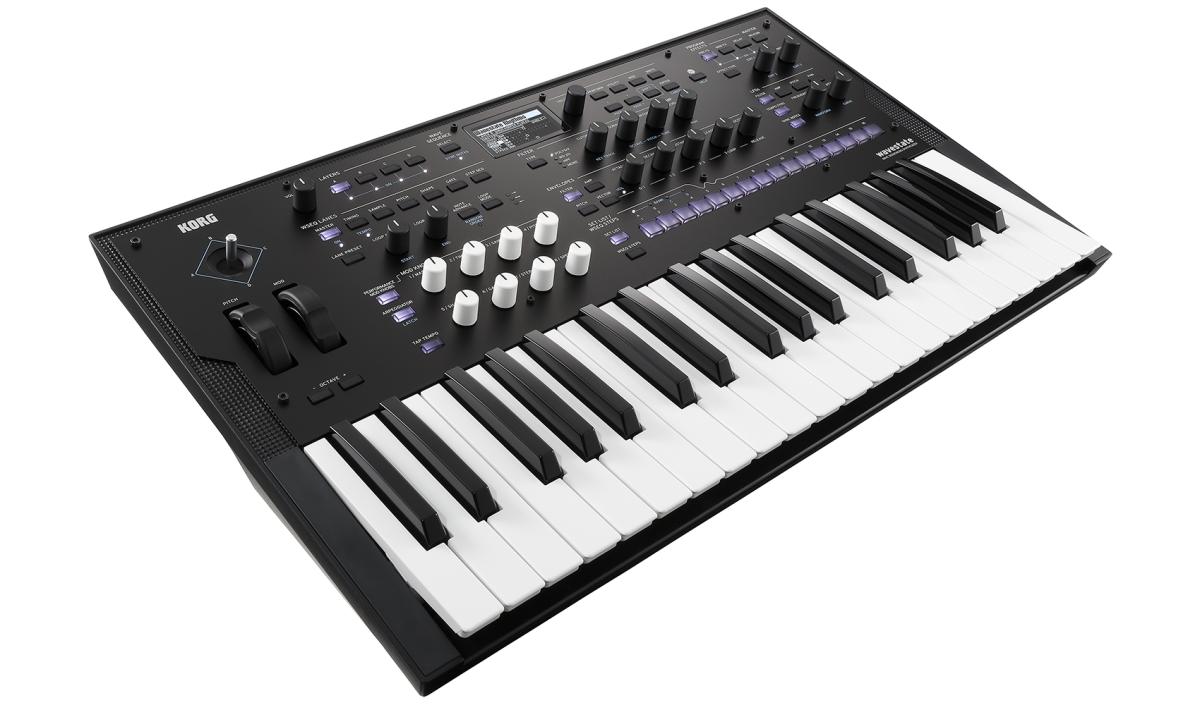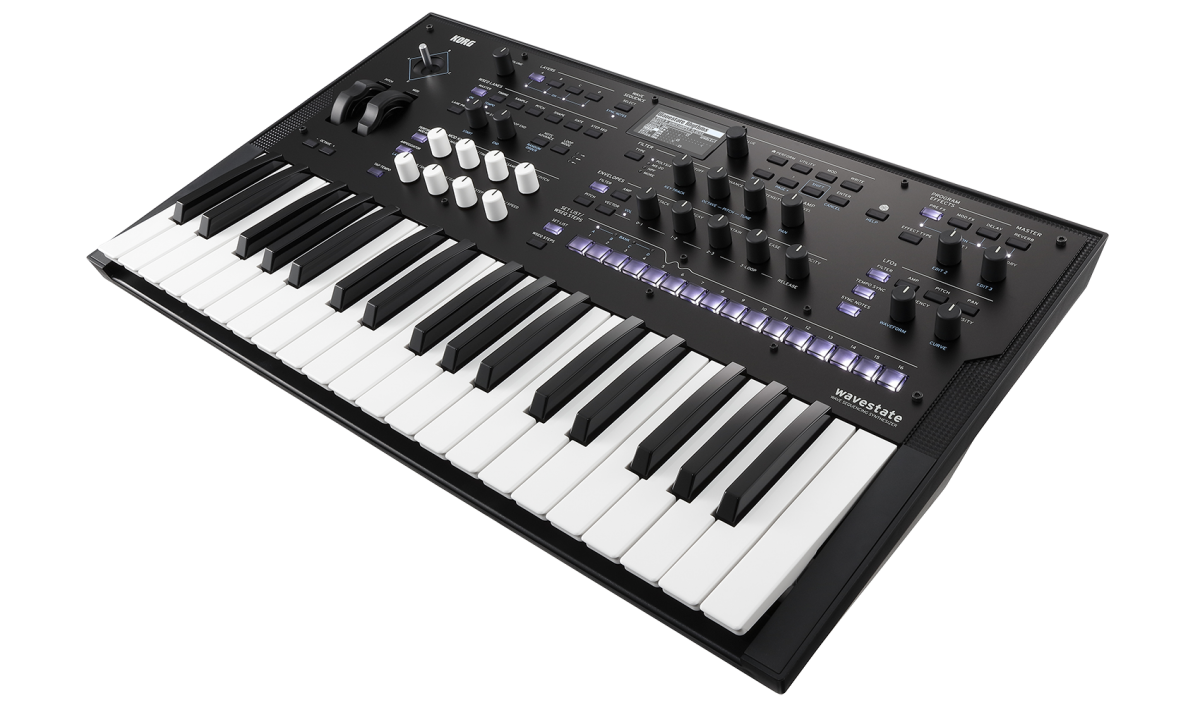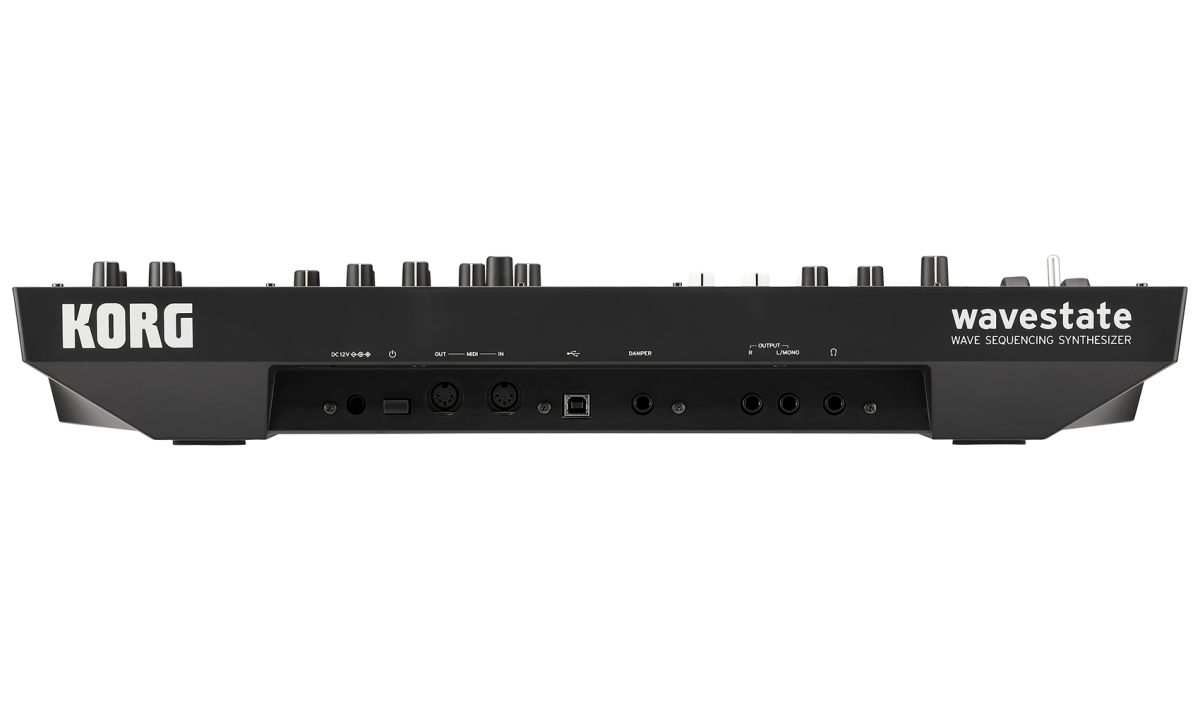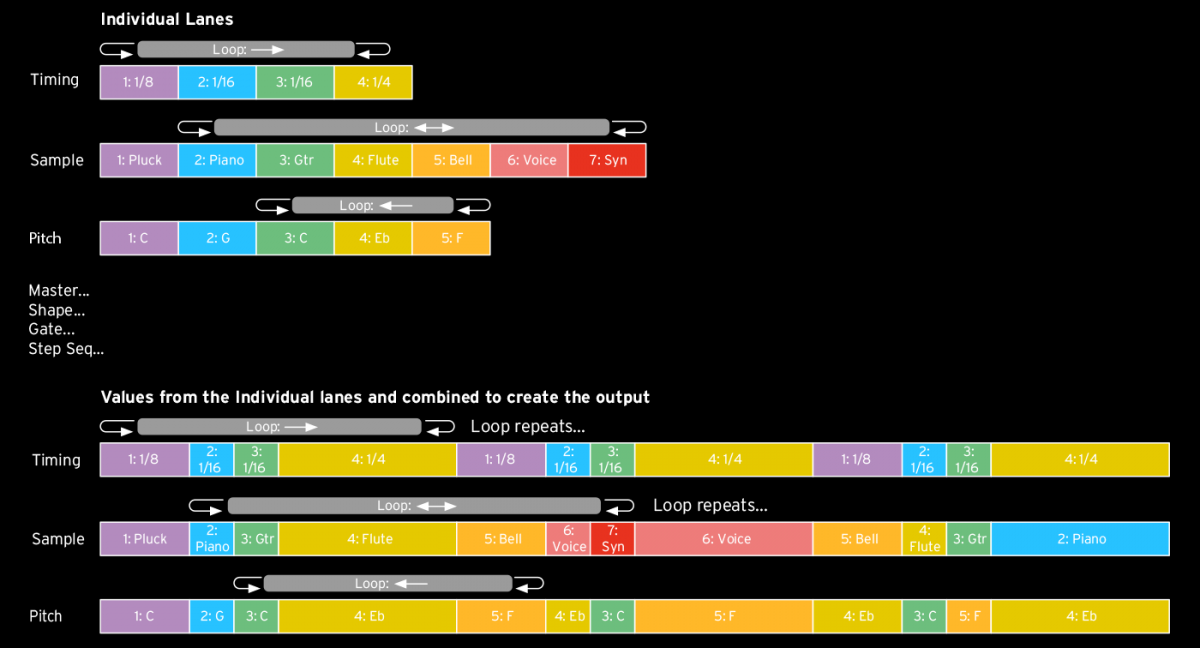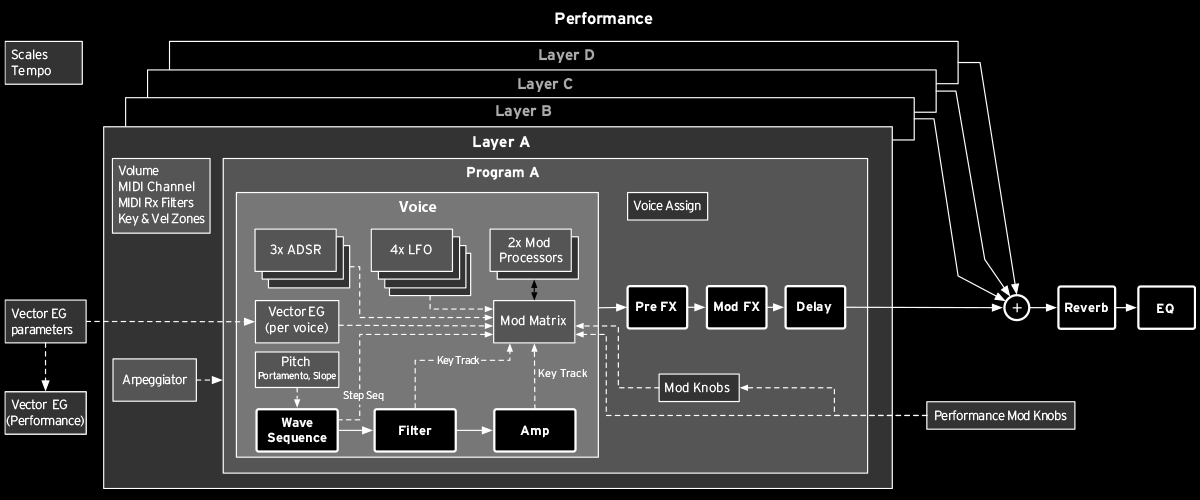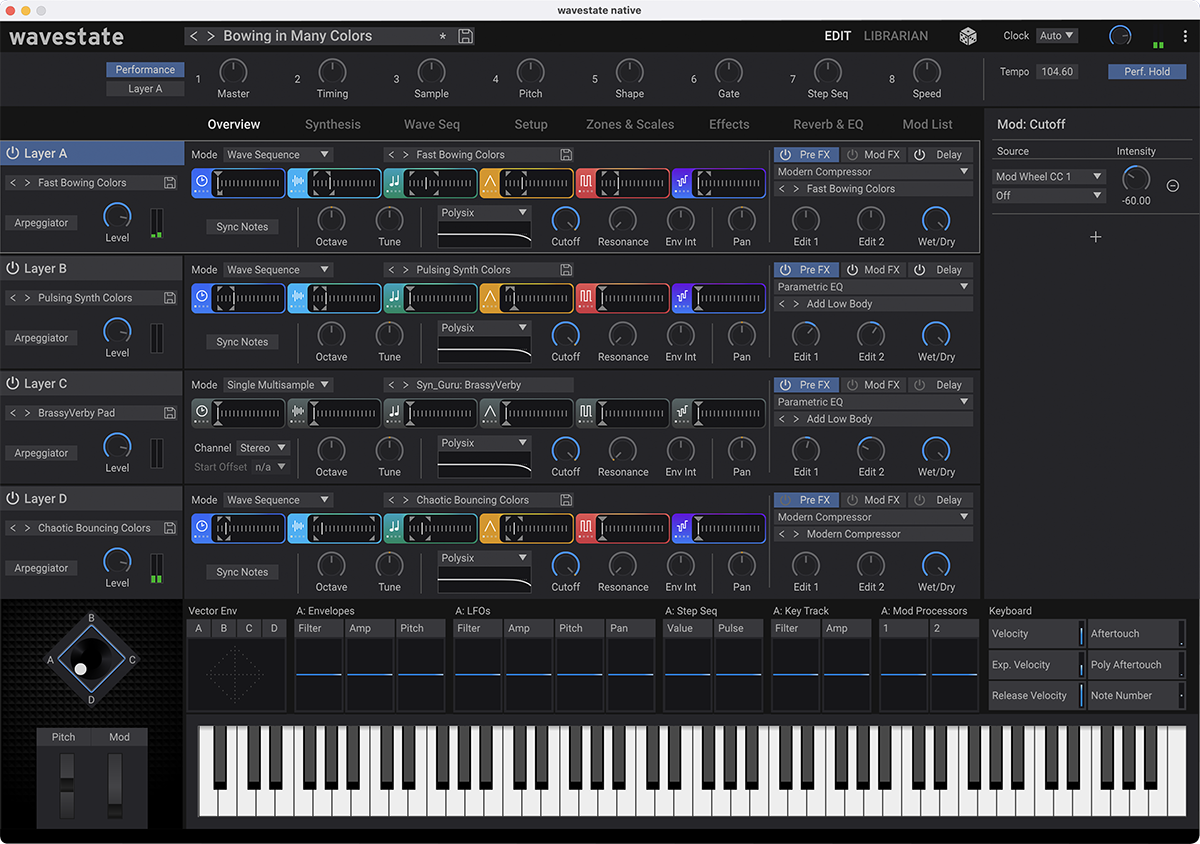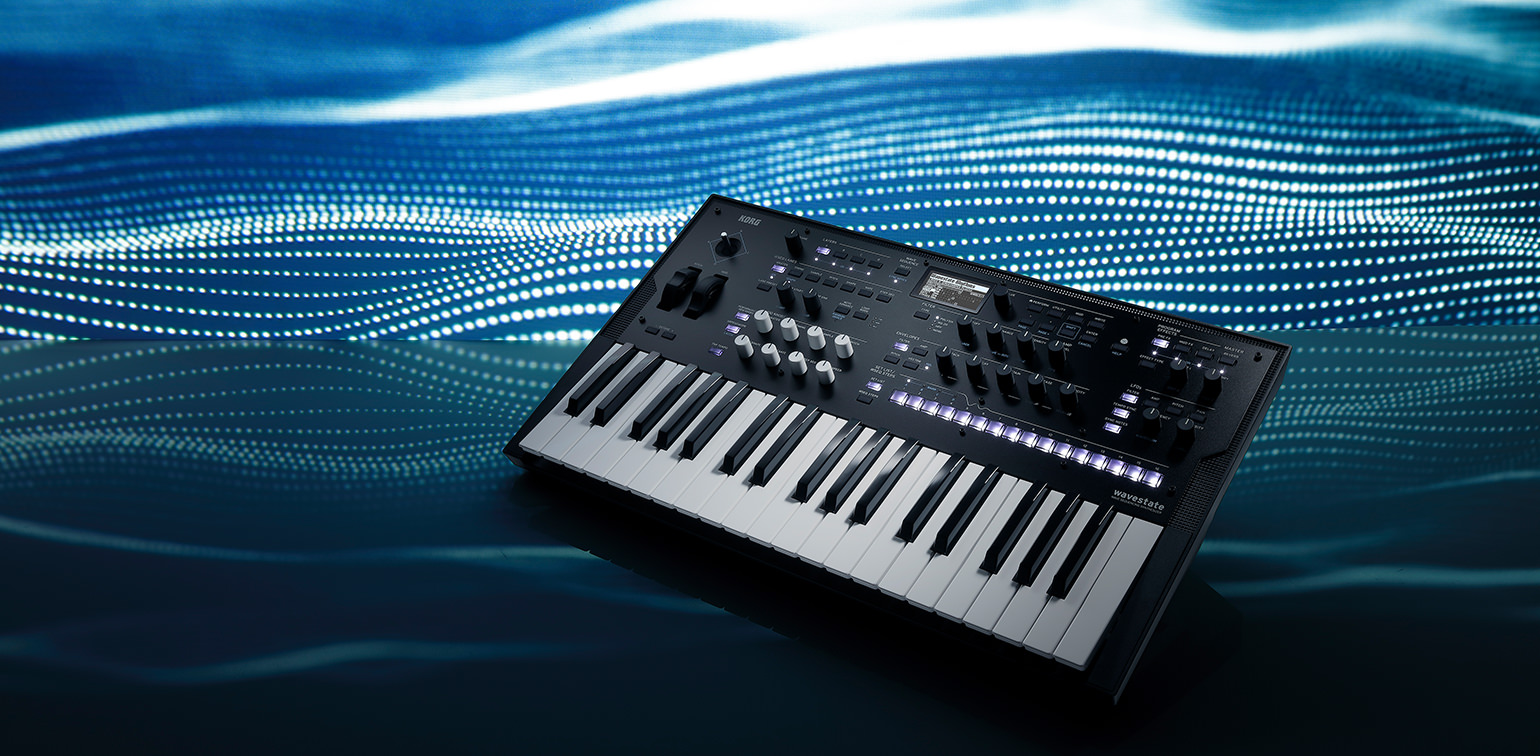
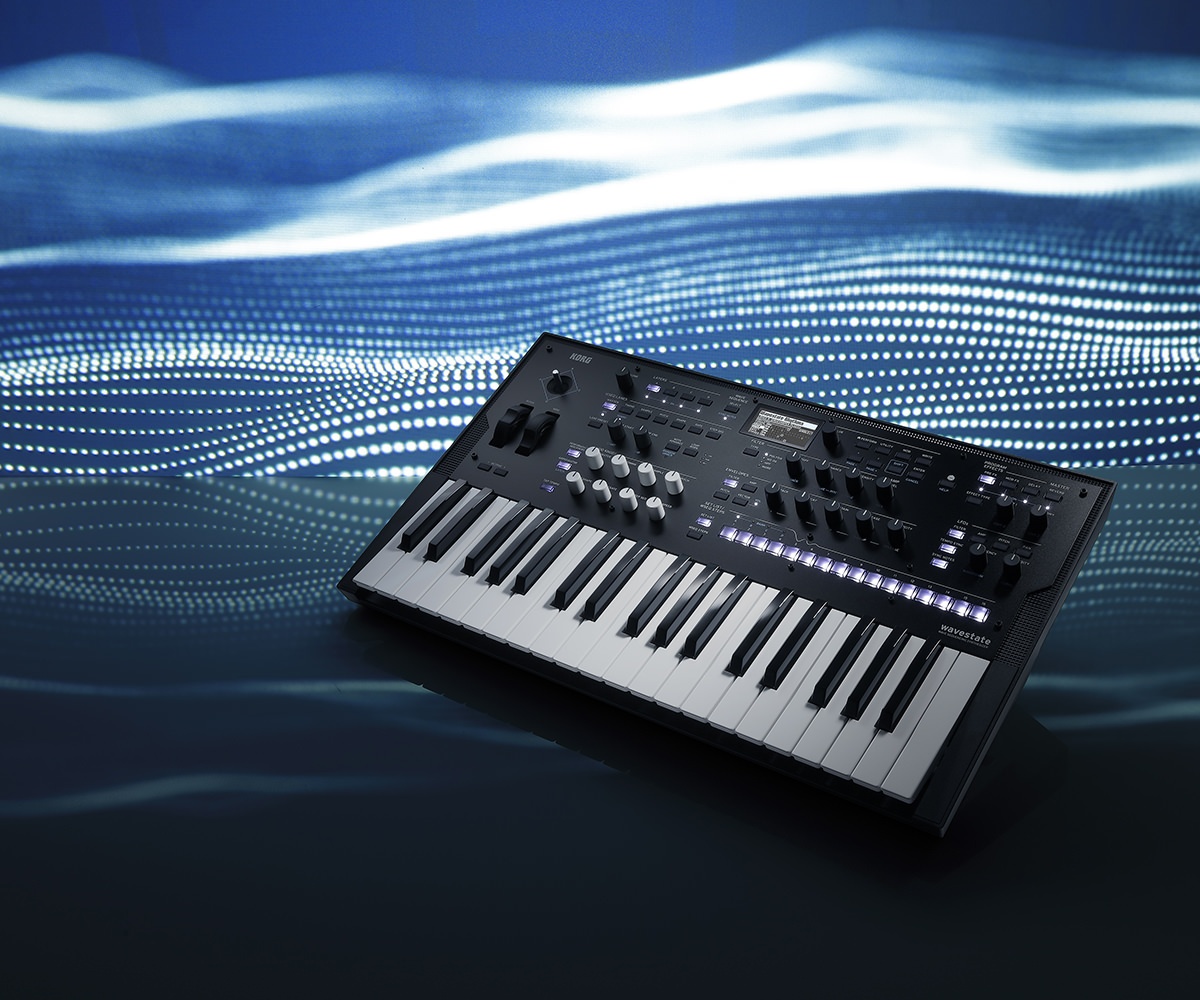
SoundCloud
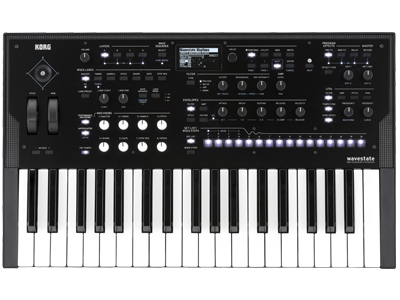
wavestate
WAVE SEQUENCING SYNTHESIZER
Support for Your Purchase
Support
Learn More
Related Sites
Related Products
News
- 2025.06.20
- Updates - wavestate Sound Editor/Librarian v1.4.5 is now available!
- 2025.04.07
- wavestate Editor/Librarian v1.4.3 is now available!
- 2025.01.29
- Updates - Korg System Updater v1.0.8 is now available!
- 2024.04.03
- New Soundpacks release for wavestate, opsix - on sale for 50% off!
- 2024.03.08
- wavetstate - Editor/Librarian v1.3.4 is now available!
Legendary synthesis, radically re-imagined.
Organic, inspirational, and mind-blowingly powerful.
KORG’s legendary Wavestation introduced the world to Wave Sequencing, transforming raw samples into sounds that no-one had ever heard before. The flagship OASYS and KRONOS keyboards developed Wave Sequencing even further, expanding on its unique palette of lush, evolving pads and driving rhythms.
Now, KORG is proud to announce the next step in digital synthesis: the wavestate. Featuring the radically re-imagined Wave Sequencing 2.0, the wavestate delivers astonishing, ever-changing sounds with extensive hands-on control.
Far from a nostalgic reissue, the wavestate is designed from the ground up for a new generation of musicians, producers, and composers, taking cues from sources as diverse as modular synths, groove boxes, and algorithmic composition. The compact form-factor, with 37 full-size keys, transports easily and fits neatly into any stage, studio, or desktop setup.
wavestate - Introduction Movie
- Wave Sequencing 2.0
- Extensive modulation with hands-on control
- Gigabytes of samples
- Modeled filters, including MS-20 and Polysix
- 64 stereo voices
- 4 Layers with Vector control
- 14 simultaneous effects
- Set Lists and Smooth Sound Transitions
- Randomization
- Compact. Great design. 37 full-size keys.
- Designed by Korg R&D in California
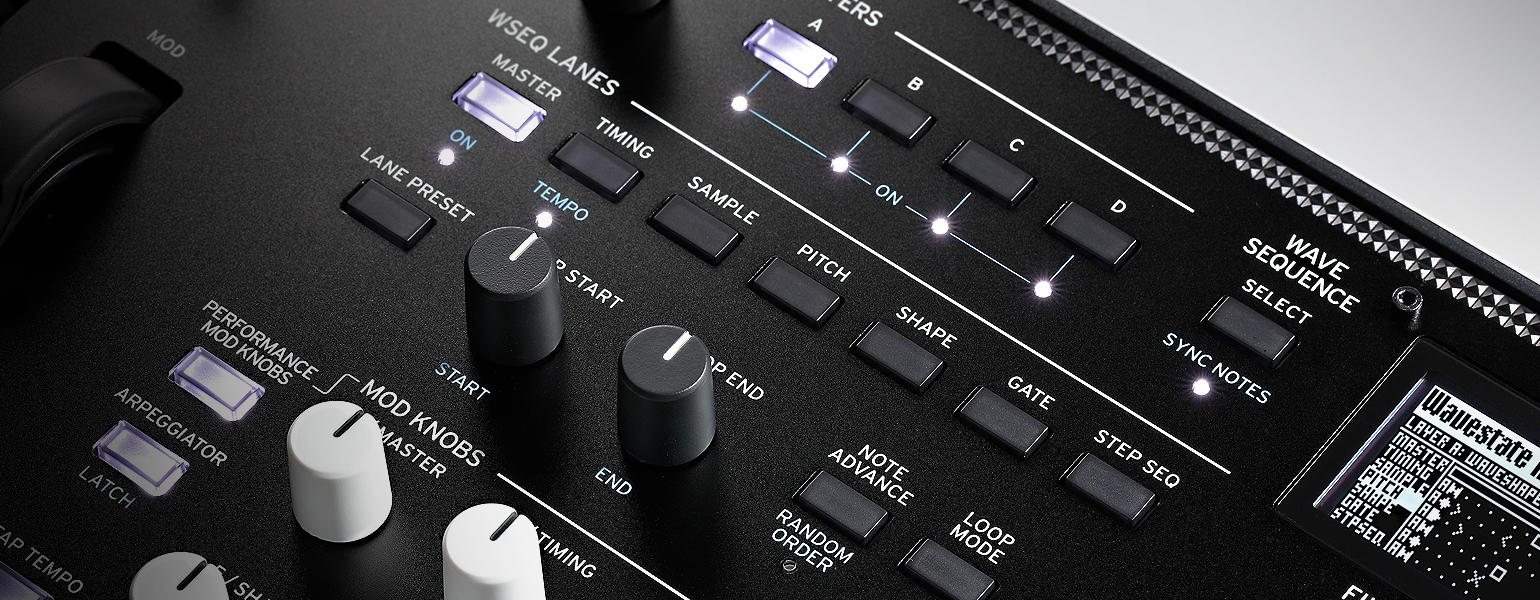
Wave Sequencing 2.0
With the Wavestation, each step of a Wave Sequence had a duration, a sample, and a pitch. This created ear-catching patterns–but the patterns repeated the same way, over and over. What if they could evolve in organic, unexpected ways, instead of just repeating?
Wave Sequencing 2.0 splits apart the timing, the sequence of samples, and the melody, so that each can be manipulated independently. Also added are new characteristics including shapes, gate times, and step sequencer values. Each of these is a “Lane,” and each Lane can have a different number of steps and its own start, end, and loop points.
Every time the sequence moves forward, the individual Lanes are combined to create the output. For instance, a sample may be matched with a different duration, pitch, shape, gate length, and step sequence value every time that it plays. You can modulate each Lane’s start, end, and loop points separately for every note, using velocity, LFOs, envelopes, Mod Knobs, or other controllers. Each note in a chord can be playing something different!
Lanes can also randomize the step order every time they play, with realtime control over the range of included steps. Finally, individual steps can be randomly skipped, with a modulatable probability from 0 to 100%. The result is organic, ever-changing sounds that respond to your control. The four onboard arpeggiators can interact with Wave Sequences for even more possibilities.
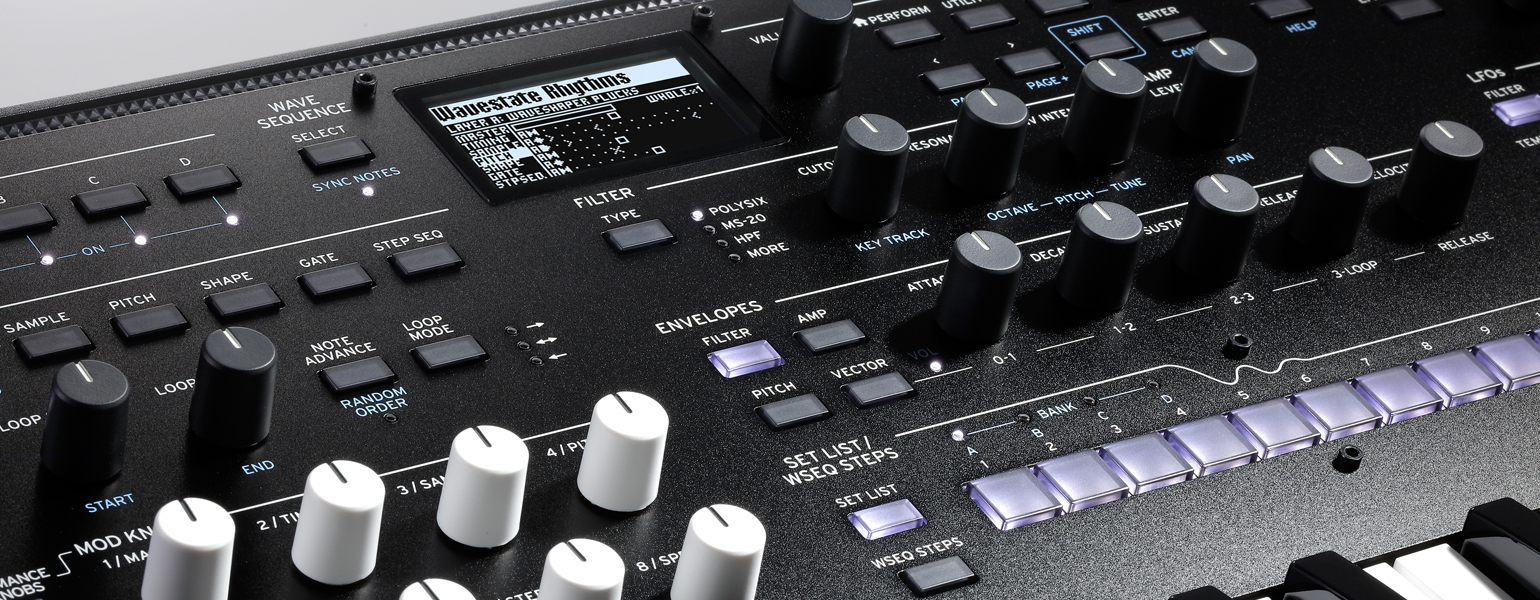
Easily expressive. Exceptionally deep.
Bursting with knobs and controllers, the wavestate invites you to explore. All of the basics–filter, envelopes, LFOs, effects–are at your fingertips with dedicated front-panel controls. Eight programmable Mod Knobs are customized to bring out the most in every sound, often taking them in entirely new directions. Use the knobs in realtime performance, and also save the results as new sounds. Add in the Pitch Bend and Modulation Wheels and the unique Vector Joystick, and you’ll always have multiple dimensions of realtime expression.
Want to dig deeper? Almost all front-panel knobs, and most on-screen parameters, can be modulated. You can even modulate settings for individual Wave Sequence Steps! Mod Processors let you transform modulation signals using quantization, smoothing, curvature, and more.
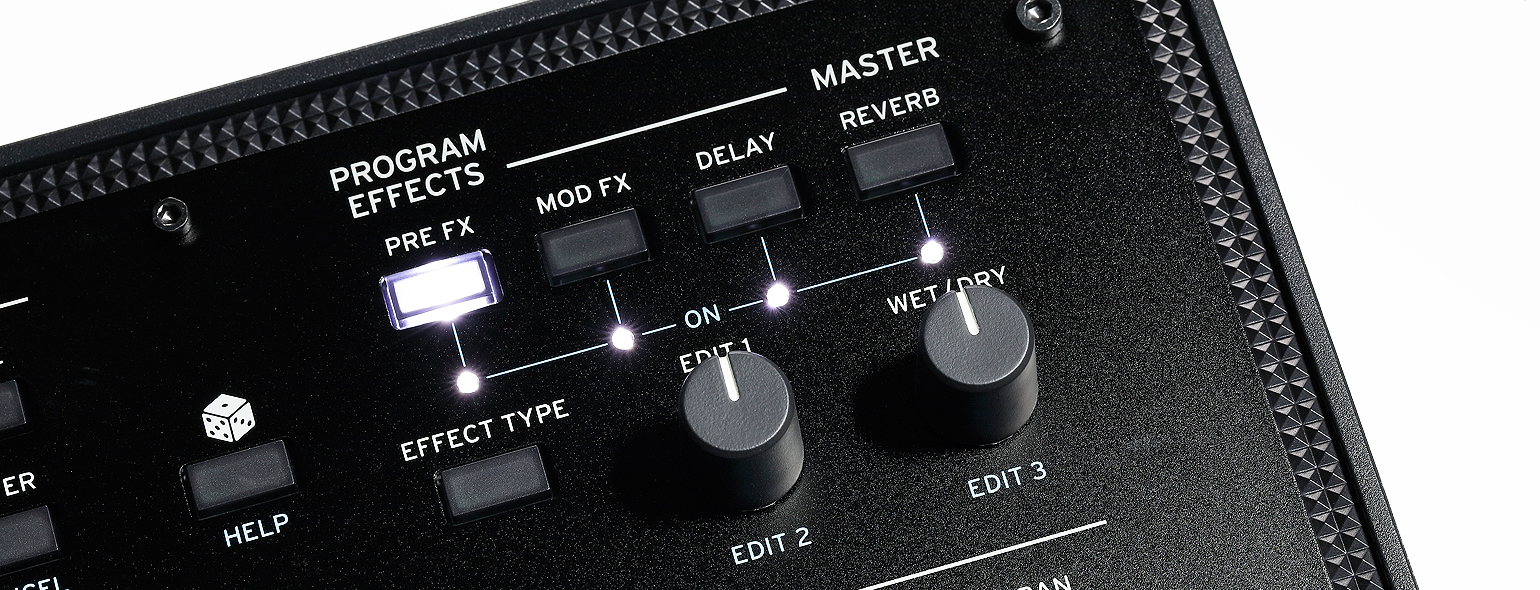
Randomization that inspires.
Looking for even more inspiration? A dedicated front-panel button, marked by a “dice” icon, generates new sounds via intelligent randomization. Randomize the entire sound or just a part of it, such as the filter, the Sample Lane, or the effects. Use the results directly, or as a jumping-off point for your own creations.
An arsenal of effects.
The wavestate’s superb effects deliver production-ready sounds. Each Layer has three dedicated effects; additionally, the Performance has a master reverb and parametric EQ. Along with standards such as compressors, EQs, choruses, flangers, phasers, and stereo delays, you’ll find distinctive processors such as the Wave Shaper, Talking Modulator, Reverse Delay, Multiband Mod Delay, and Overb (from the OASYS), plus modeled effects including VOX guitar amps, VOX wah, multi-head tape echo, and a collection of classic guitar pedals.
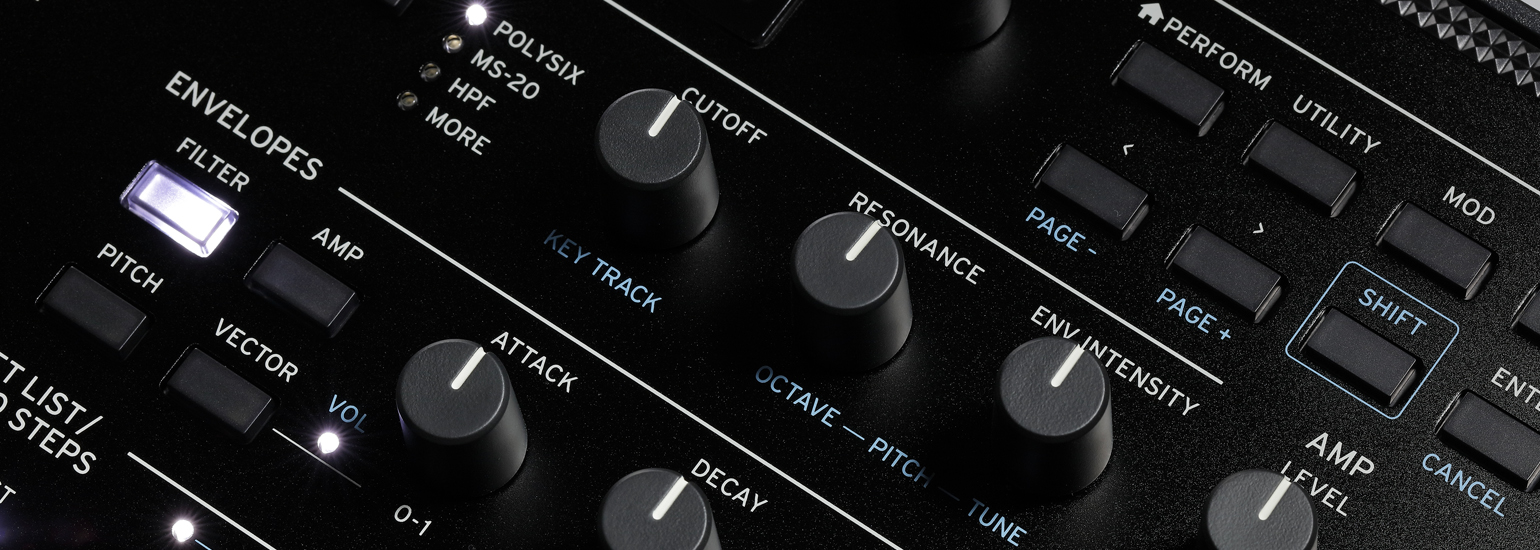
Choose your filter.
Add vintage character to your sounds with the aggressive MS-20 Lowpass or Highpass filters, or the strong, sweet Polysix Lowpass. Shape and refine with a full collection of resonant 2-pole and 4-pole Lowpass, Highpass, Bandpass, and Band Reject filters. Or, step outside the box with KORG’s unique Multi Filter, which creates modulatable blends of multiple modes simultaneously.
Ample samples. 64 stereo voices.
Totaling in the gigabytes, the wavestate’s sample library is more than a thousand times larger than that of the original Wavestation. That’s a lot of great-sounding raw material for Wave Sequences. There’s a bank of samples from Plugin Guru, brand-new samples from KORG, and a selection from the Kronos and Krome libraries. Of course, KORG also provides all of the Wavestation’s samples (including all options), plus a huge library of Wavestation Wave Sequences. Play up to 64 stereo voices with pristine clarity, using KORG’s proprietary anti-aliasing sample playback technology.
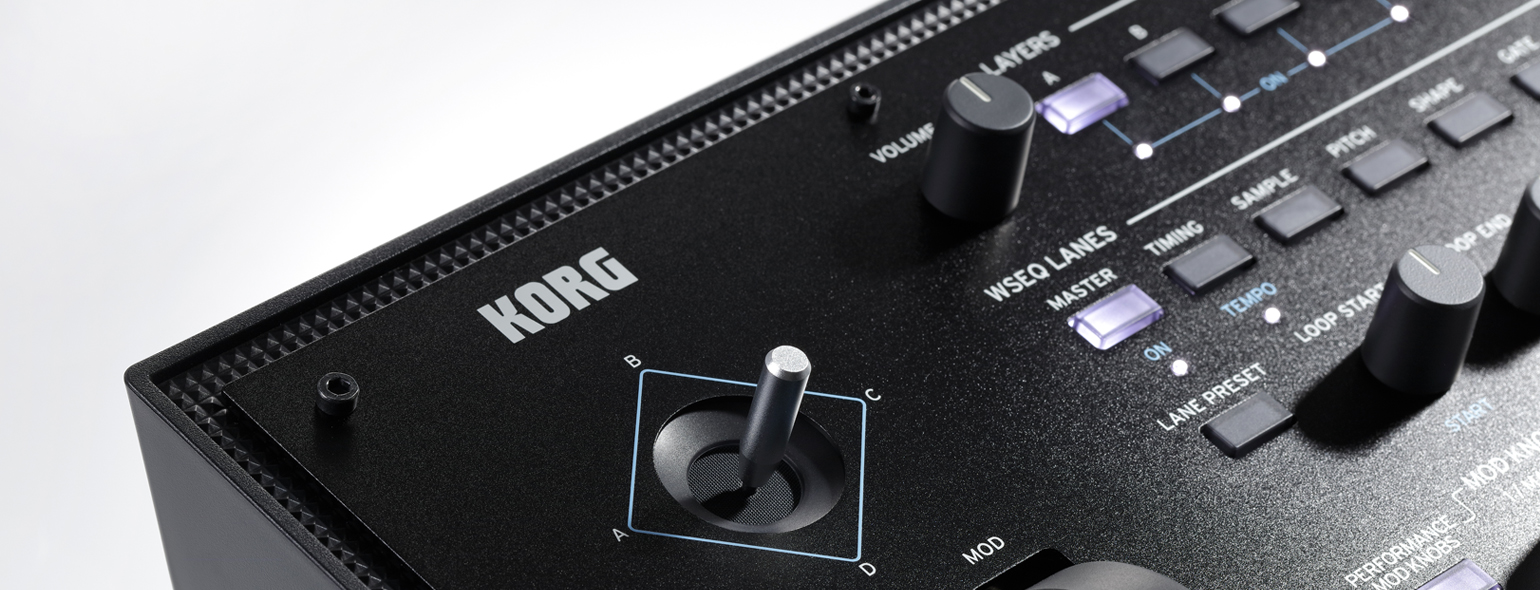
Multiply by four.
With all of that synthesis power, you might think the wavestate would play only one sound at a time. Not a chance. For even more rich and complex results, layer up to four Programs together in a Performance–each with their own effects and arpeggiator. The Vector Envelope and Joystick mix the individual voices of the four Layers, and can also modulate any other parameters.
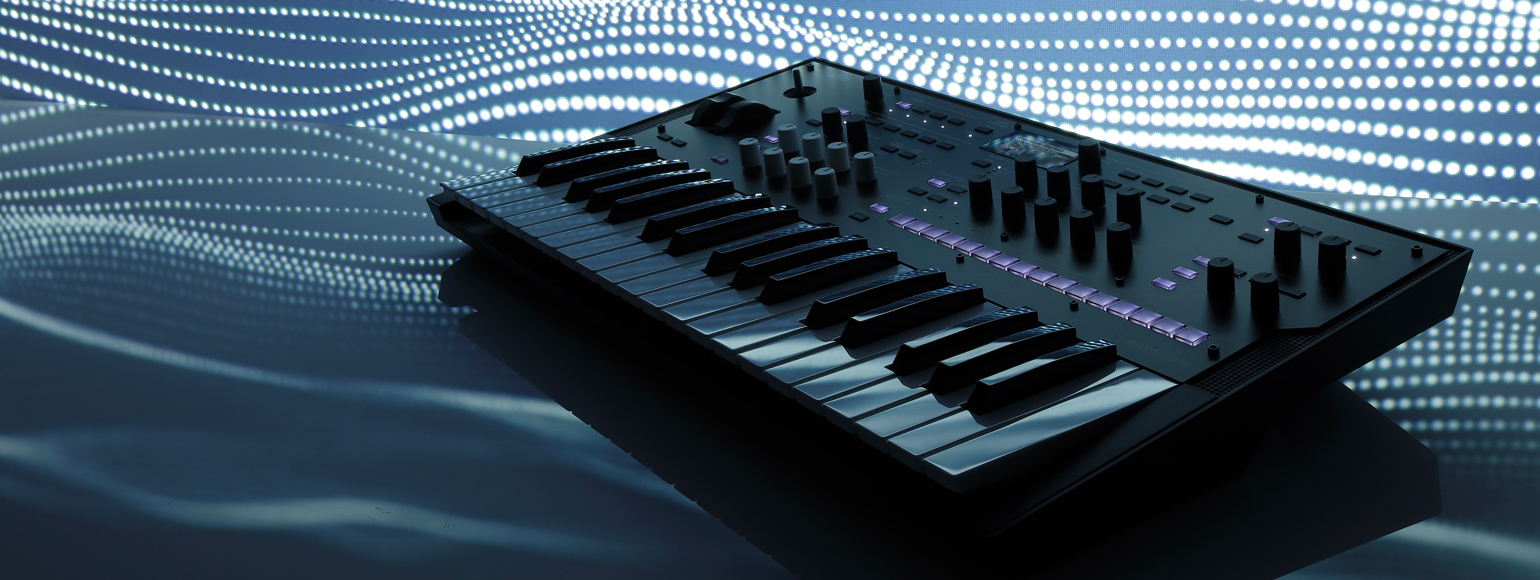
Set Lists and Smooth Sound Transitions.
Set Lists offer effortless organization of your wavestate Performances, and deliver instant access at the gig or in rehearsal. Smooth Sound Transitions allow previously-played voices and effects to continue to ring out naturally, even once a new sound has been selected.
Plays well with others.
Balanced stereo outputs connect to any recording or monitoring system, and a stereo headphone output is provided for private playing or onstage cueing. Din-style MIDI jacks ensure connection to other MIDI-equipped instruments and audio gear. The wavestate supports class-compliant USB MIDI connections to Windows and Mac computers, and the wavestate librarian program is available as free download from KORG.
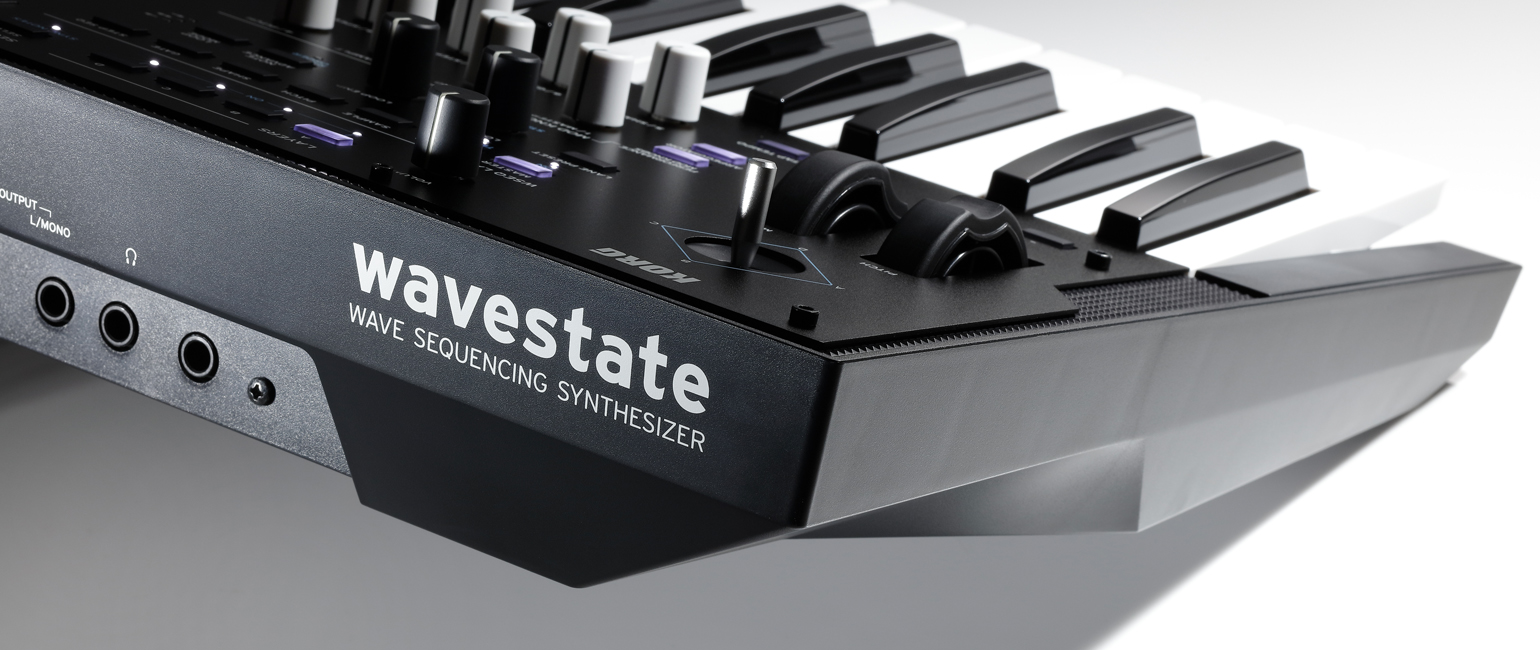
Structure
Designed by KORG R&D in California.
KORG R&D created the original Wavestation, co-created the OASYS and Kronos, and has developed fundamental technologies behind many other KORG instruments. The wavestate reflects their unique aesthetic, delivering stunning sound and deep flexibility via cutting-edge technologies.
Three of the key sound designers from the original Wavestation, John Bowen, John “Skippy” Lehmkuhl (Plugin Guru), and Peter “Ski” Schwartz, joined Belgian artist Airwave and the renowned KORG voicing team to create the incredible wavestate sound library.
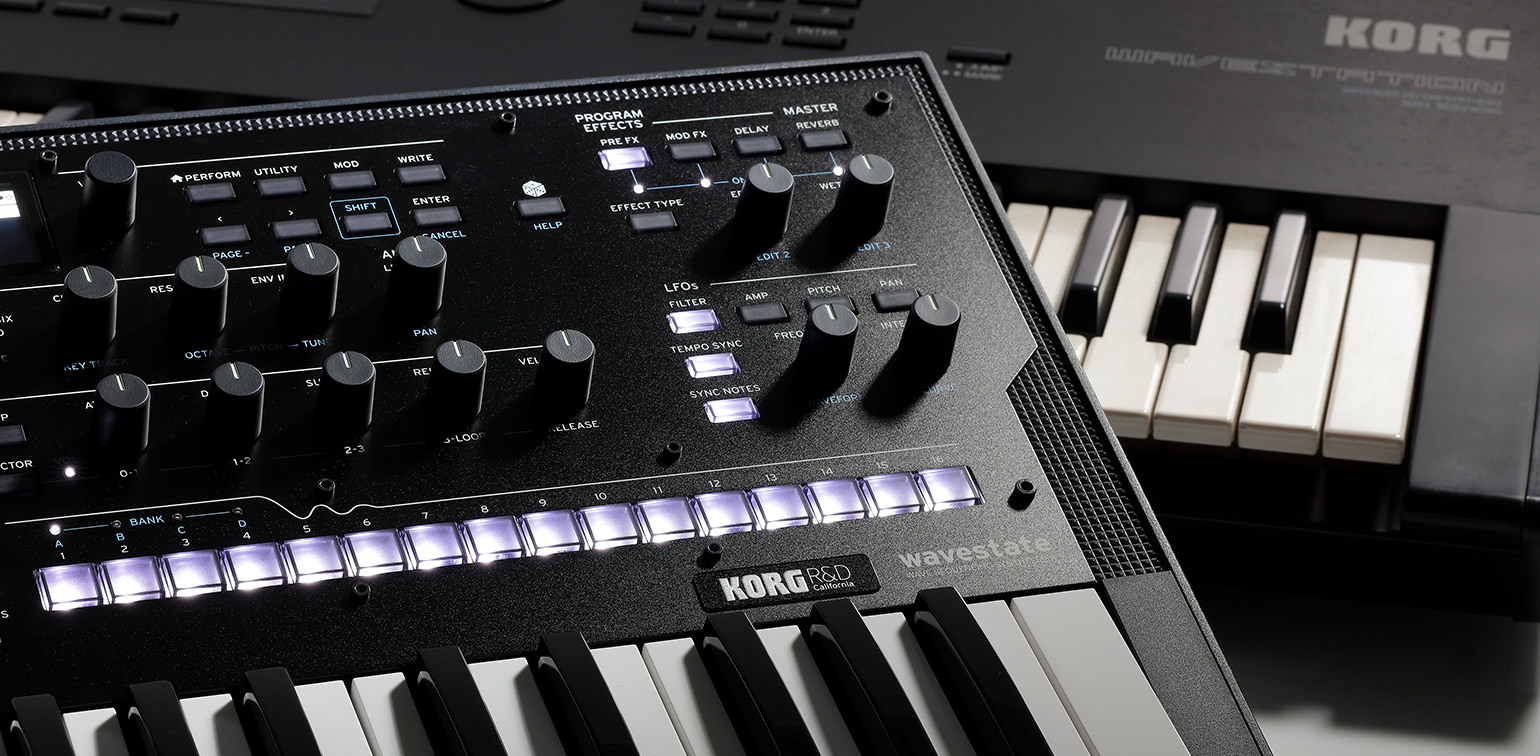
Free bundle of music software
The wavestate comes with a diverse variety of music software from Izotope including “Ozone Elements” which lets you not only create songs but also master them using AI, “Skoove” which will help you improve your keyboard playing skills, as well as software synths from KORG and other brands.
In other words, the moment you get your hands on this synthesizer you'll have a variety of tools to help you take your music to the next level.
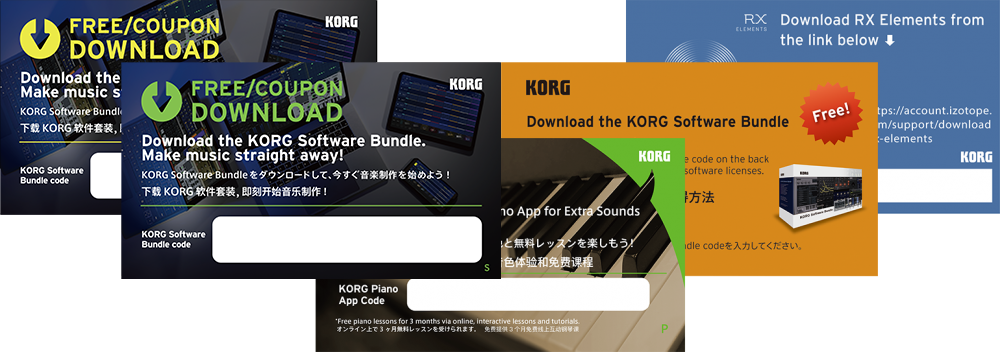
Special crossgrade to wavestate native (software)
Owners of the hardware wavestate are eligible for a crossgrade license to wavestate native at the special price of US $49.99, via a coupon code tied to the wavestate hardware’s unique ID. Using the hardware and software versions together, you can have the best of both worlds: a physical instrument that responds to your touch, and complete DAW integration. To generate the coupon:
1. Download wavestate system version 2.1.0 or later and wavestate Editor/Librarian 1.1 or later.
2. Update your wavestate hardware, and install the new Editor/Librarian.
3. In the Editor/Librarian, open the File menu and select "Get Plug-in Coupon…"
4. A dialog will appear, with the coupon code; follow the on-screen instructions to use the coupon in the KORG Shop.
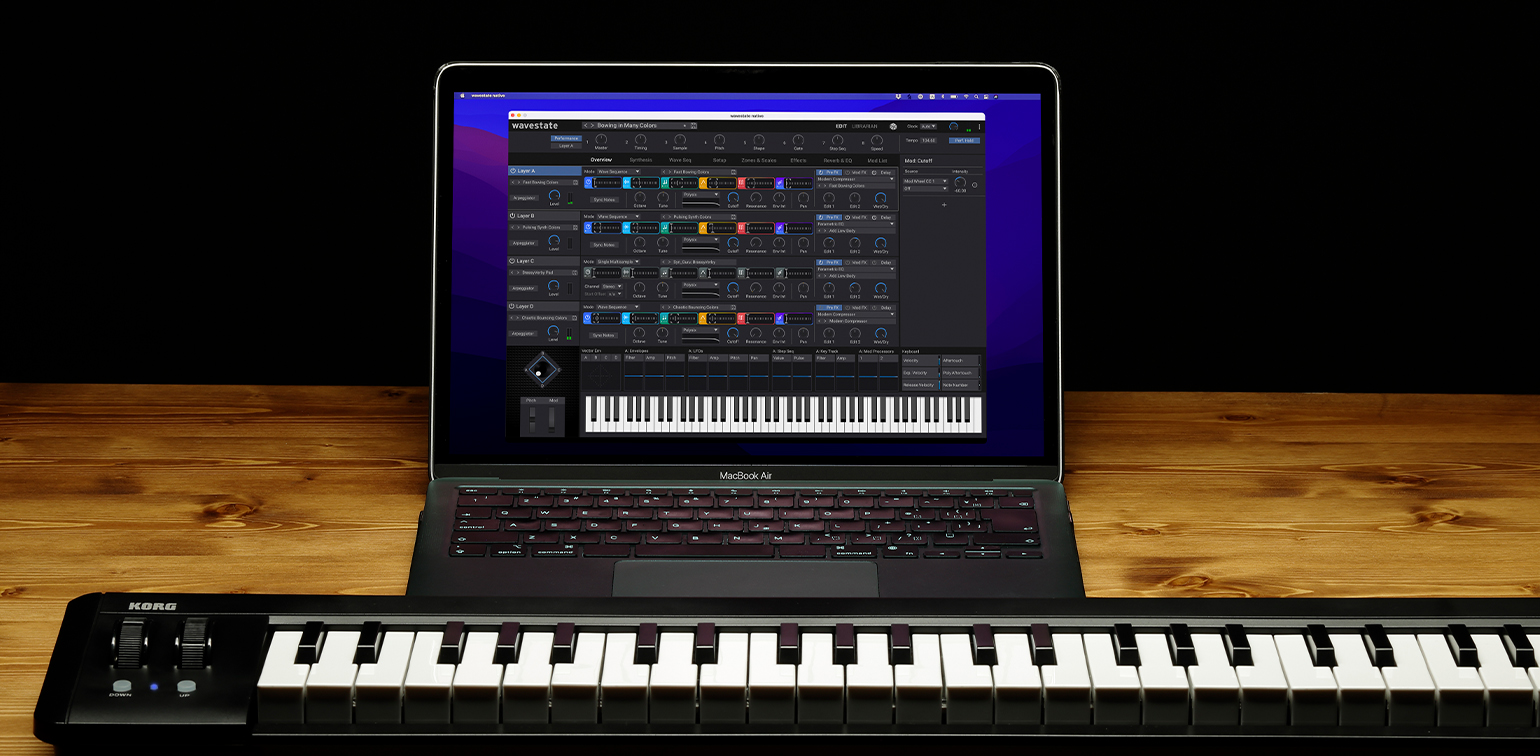
wavestate native
KORG’s legendary Wavestation introduced the world to Wave Sequencing, transforming raw samples into sounds that no-one had ever heard before. The flagship OASYS and KRONOS keyboards developed Wave Sequencing even further, expanding on its unique palette of lush, evolving pads and driving rhythms.
In 2020, the acclaimed wavestate brought Wave Sequencing to the next level. Featuring the radically re-imagined Wave Sequencing 2.0, the wavestate delivers astonishing, ever-changing sounds with extensive hands-on control. Far from a nostalgic reissue, the wavestate is designed from the ground up for a new generation of musicians, producers, and composers, taking cues from sources as diverse as modular synths, groove boxes, and algorithmic composition.
Now, Korg is proud to present wavestate native, the fully-compatible software counterpart to the hardware wavestate synthesizer. wavestate native is available in VST3, AAX, and standalone formats on both macOS and Windows, as well as AU on macOS. You can seamlessly exchange sounds between hardware and software. Produce in your DAW with wavestate native, and then play the same sounds onstage using the wavestate hardware. Create sounds with the hardware’s hands-on interface, and then share them with a computer-based collaborator. Plus, you can use any of the many third-party sound and sample libraries available for the hardware wavestate.









